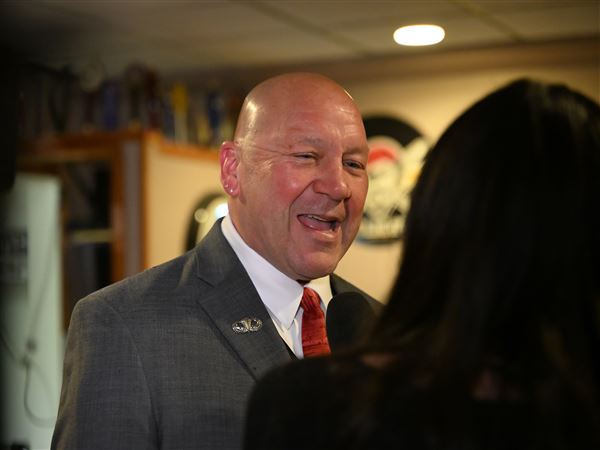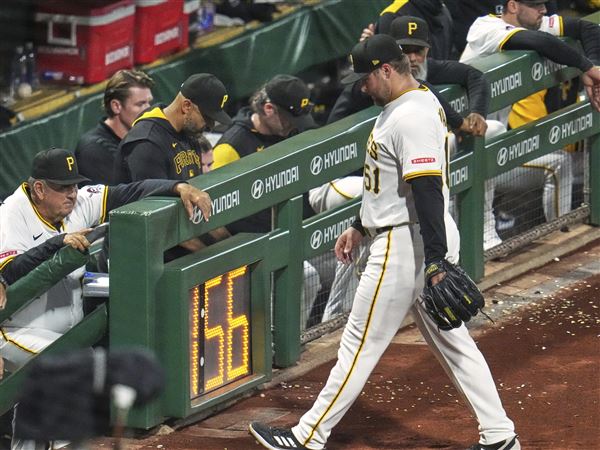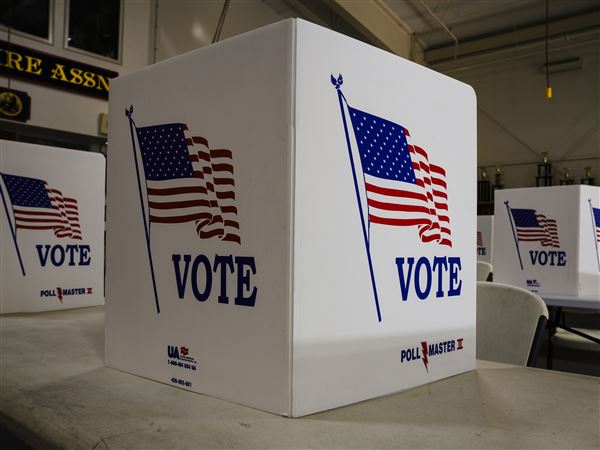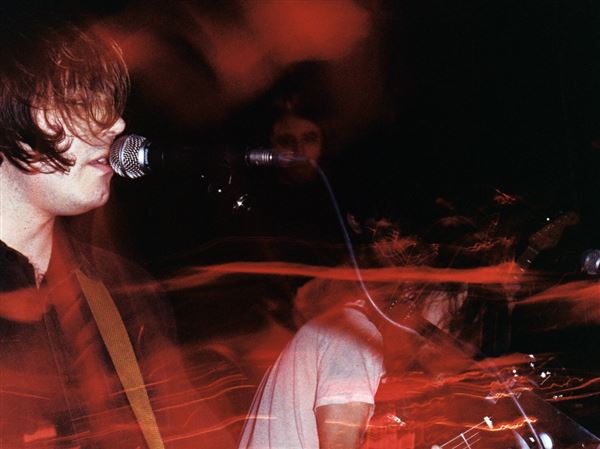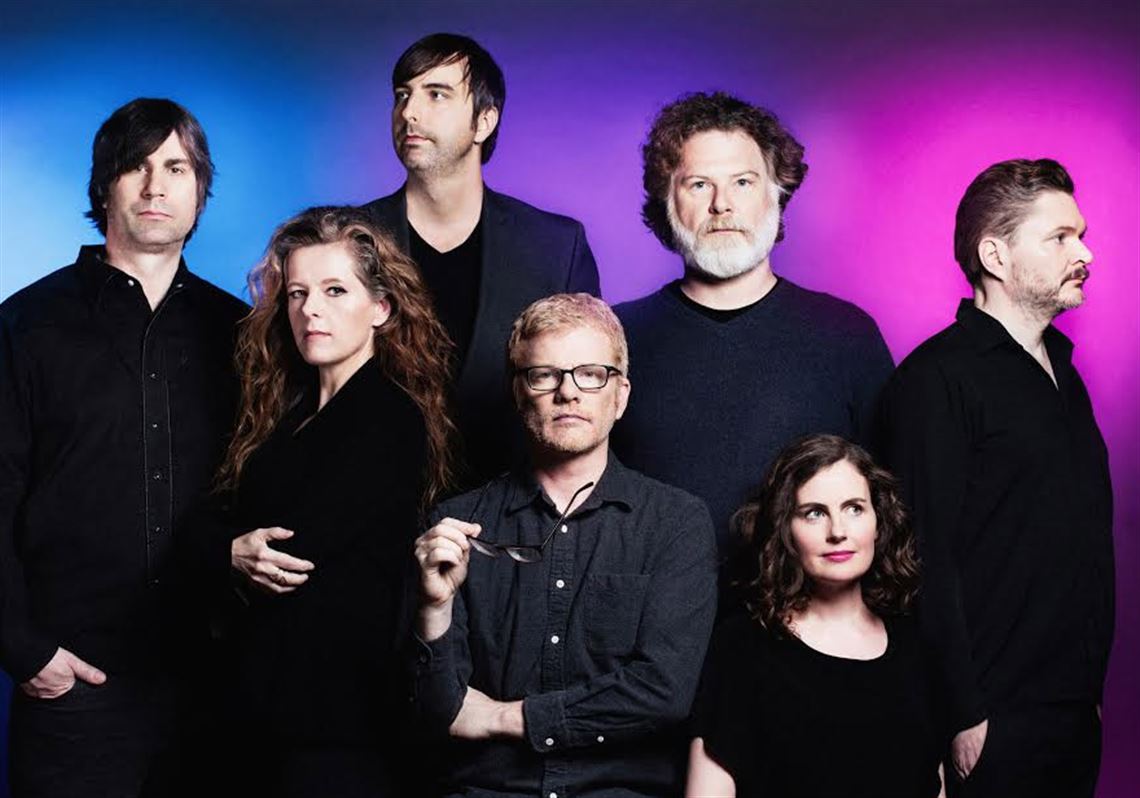The title track of the latest New Pornographers album, “Whiteout Conditions,” deals with a bout of depression, getting into fine detail about dosages and inhibitors.
You wouldn’t expect upbeat material from such a subject, but in the hands of the band from Vancouver, it turns into the kind of driving power-pop song you can blast in the car with the windows rolled down.
That’s just how the New Pornographers roll.
This is the seventh album from the indie rock darlings who have rarely faltered since debuting with “Mass Romantic” back in 2000. It’s hard to miss when you have the pop-smarts of A.C. Newman joined with the harmonies of Neko Case and Kathryn Calder.
“Whiteout Conditions,” the follow-up to 2014’s “Brill Bruisers,” marked a change for the band with the departure of drummer Kurt Dahle and the lack of participation of Dan Bejar, who has been dividing his time with his own project Destroyer.
The result is the first New Porn album where Mr. Newman wrote all the tracks and one where drum machines, in part, drive the rhythms.
Earlier this month, the frontman talked to us about the album, the tour with Spoon that hits Stage AE on Wednesday and his active Twitter feed of politics and humor.
So, you had a few personnel changes going into this record. How did that impact the process?
In a lot of ways it was exactly the same because Dan’s not on it, but he never worked on my songs. I would work on his, but he never worked on mine, so for me the part that was actually working seemed the same. It was just there that was an omission. And then the other side of it was having a different drummer, which was cool. It sort of opened it up. That was a big part of the different sound of this record. The drumming was more repetitive and we used more drum machines. We’d have drum parts that were part drum machine and part real drums, just like messing around with drums in a way we never did before because our previous drummer was proprietary about the drums. He didn't want us manipulating or messing with his drums too much. On this record, we just said, “Let’s just [mess] with the drums as much as we want now.”
So it was liberating in a way?
It’s not better or worse, but when you’re on album seven, the argument could be made that that’s good. You're trying to do something different, so it’s just thrust upon you. Like, OK, this record is going to be different whether we want it to or not, so let’s just go with it.
Does the record seem more cohesive to you?
Yeah. That’s what I realized. I don’t know that cohesive is the right word, but it was bound to have a similar sound just by virtue of the fact that now there’s only one person writing the songs. We thought let’s run with that.
The great thing about the New Pornographers is you’re always going to have those strong vocals. No big change there.
That’s what I realized. There’s a kind of song that I just write. When I just sit down and I’m just playing on a guitar and I’m just trying to come up with melodies and words and harmonies, there’s a certain thing I do and the choices I make to make it different. So much is in the arrangement. Just by virtue of the arrangement, you can change a song from a piano ballad into like a hard rock song, just by stripping things away or adding things. It’s nice to know that there is a sort of cohesion that will always be there because I can’t help write a certain song. I have a certain style. I can’t place it, but it’s there.
You’re obviously very engaged politically, but you keep it low-key in the band. “High Ticket Attractions” has a political slant but is left to interpretation
It just feels right to me somehow. When I’ve tried to write something that is super political, it just doesn’t work. Also, for me, it always starts with the music. There’s the melody and the phrasing of the melody and the syncopation of the melody, so I could write like 10 pages of lyrics and go, “This is amazing, I love these lyrics, but I wouldn't be able to fit them into the song.” And I don’t write simple three-chord folk songs where I can just recite my story over top of them. It’s always like, OK, I’m limited to what I can say because I’m limited to a number of syllables here and the vocals are always clipped. When I do write a song that has like a narrative in it, I’m very happy. The song “Whiteout Conditions” was interesting to me because in its way, it’s simple but has one of the most busy, verbose melodies I’ve ever written. It’s almost like “America” from “West Side Story,” so in that song, it was like I can almost tell a story here. There are some lines in there that would be super clumsy in another song.
It’s interesting that the lyrics deal with something earth-shaking but it ends up as a high tempo power-pop song.
I've been thinking about that recently. Having written that song that comes from a bad place, but then you take it and turn it into this upbeat song, and then [play] it on Colbert, it all feels very surreal. In a very obvious way, there’s a catharsis. I took something that was very bad and I turned it into a song, and now I’m singing it on Colbert. It makes me think, “Wow, I guess this is how you’re supposed to do it, huh?” A classic example of someone hands you lemons so you make lemonade.
It’s a personal subject you don't have on all your songs.
There are personal songs, but they’re usual quieter songs. Like, songs that are the ballads, most of the ballads we’ve done are very personal songs, but then this one is sort of unique in that this one is an upbeat pop song, there’s something in the nature of the melody that made it a song where you can throw in a lot of lyrics.
How does taking it to the band impact that?
When we did it, we were recording tracks in LA, and this was sort of a new song and they hadn’t heard it and I said, “Here’s my new song,” and we just started playing it. So there wasn't a lot of talk about what the vibe was going to be. It’s a pretty straightforward song. It has fewer chord changes than our songs usually do. The verses are just like B-flat and G-minor, and it stays on each chord for like four bars. It seemed like we just started playing it, and the vibe was self-evident.
So, how did you hook up with Spoon for the tour?
We’ve known them for years. It just happened. We know them, our booking agents are friends. And finally the timing is right because we put out records within a month of each other. When you’re going to smaller markets, it makes sense to show up with more of a super-bill. For us to headline in some of these smaller places, it’s like, “I don’t know. Is anyone going to come see us in this town?”
Both bands are kind of primary indie rock bands. Are we in a post-indie rock boom?
I don’t know. I think the definition of indie rock has just changed. There are a lot of bands that get referred to as indie rock, but they’re not very indie. A lot of it just sounds like mainstream pop, or a lot of it just sounds like R&B, and that’s very cool. If you think of indie rock like it’s the early 2000s and there’s the Pornographers and Spoon and the Shins and Death Cab, arguably we’re past that. Now all those bands and all that music is a sort of classic rock, almost. You have people who are like married and probably have kids who listened to that when they were like 17.
You’re probably gonna tweet, “Some guy just asked me if we’re in a post-indie rock boom period. What an idiot.”
No, the only time I ever tweeted about an interview was when the guy thought that N-I-C-O from the Velvet Underground sang on my record. And I just thought like, “How can I even go on with this interview?” I think he felt immediately embarrassed, and I said, “I hate to break it to you, man, but she’s dead. Long dead.”
I think she would be a little slow for the New Pornographers,
Yeah. And that said so many things to me. Not only do you not know who I am, you don't know who Neko Case is either. Which means you probably know nothing about the New Pornographers. You’re probably thinking, “Why was I assigned this guy?” It’s like he didn’t read anything about us. He just went to a friend and said “So, in 15 seconds, tell me about this person.”
In terms on Twitter, how is the reaction to what you do? How do you think it has affected your fan base?
I don’t know. I know I’ve probably lost a few fans because sometimes people do that to you, if you disagree with them. They try to throw that thing that they were a fan. It's like, OK, you want me to suck up to you in the off chance you’ll come to my show? Should I change my political values in the off chance you’ll come to my show? All I can do is speak freely. I think it would be pretty sad if I was just crumbly weakly and just guessing at what people want me to say.
Scott Mervis: smervis@post-gazette.com; Twitter: @scottmervis_pg
NEW PORNOGRAPHERS
With: Spoon.
Where: Stage AE, North Shore.
When: 7 p.m. doors Wednesday.
Tickets: $35/$37; ticketmaster.com.
First Published: July 24, 2017, 1:04 p.m.
